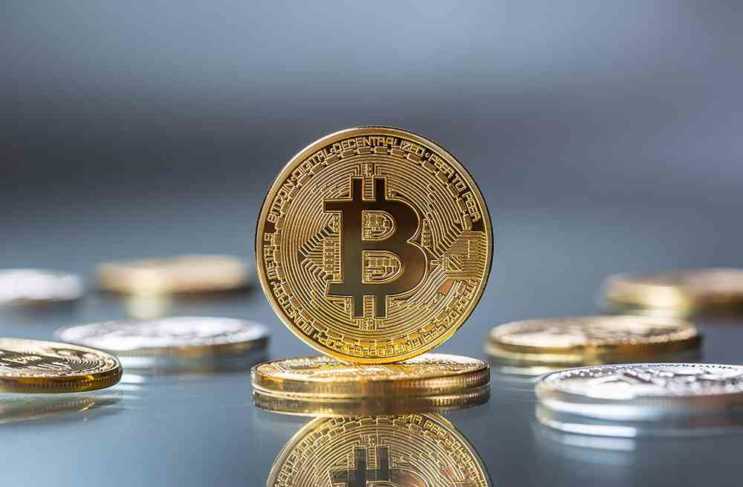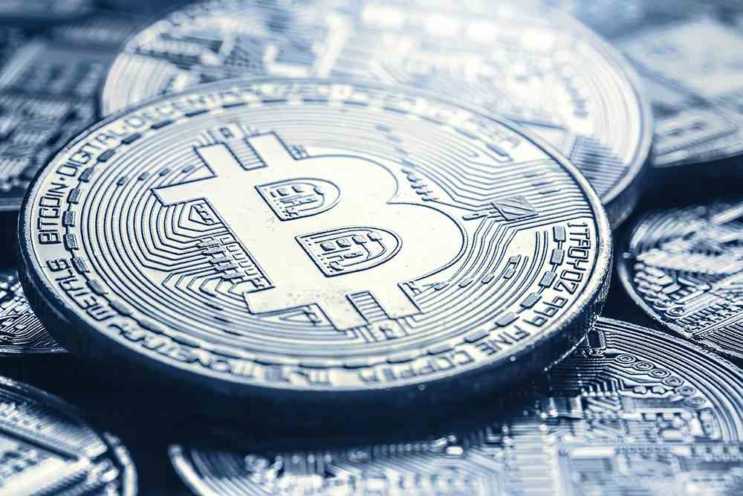In 2009, Bitcoin made a not-so-grand entrance, with not too many within the financial world paying it much attention. At one point, in May of 2010, someone bought two large Papa John’s pizzas for 10,000 bitcoin. This is the lowly state from which the world’s first cryptocurrency rose – from something that was worth only .0018 of a $9 pizza to being referred to as Gold 2.0.

At the date this article was drafted, 10,000 bitcoin is worth roughly $62.2 million, give or take. The profile of bitcoin has steadily risen over the past decade, causing even those who know little about blockchain and cryptocurrencies to become interested in it as an alternative form of currency and investment.
This increased interest in bitcoin has increased its value. For the first half of 2017, it hovered around $1,000, hitting a new record of $5,000 in October. In early November, it reached $7,000. In December 2017, it peaked at nearly $20,000.
As we entered 2018, the cryptocurrency seemed to go into a downward spiral. Nevertheless, it’s still more valuable than gold.
So, what happened? If so many people were rallying around it, why did the value drop so dramatically? And will it ever regain its value back?
On December 4, 2017, the Cboe Global Markets, Inc. (Cboe: CBOE |Nasdaq: CBOE) announced that the Cboe Futures Exchange (CFE) planned to offer trading in Bitcoin futures on December 10, 2017.
Beginning at 5:00 p.m. CT on December 10, 2017, that is precisely what the CFE did, with a full day of trading taking place the next day on Monday. The CFE offered free trading through the rest of the month until the New Year to promote this revolutionary product.
The Bitcoin futures trade on the CFE under the symbol “XBT.” U.S. dollar-denominated Bitcoin futures (XBTSM) are settled in cash according to the auction price set by the Gemini Trust Company, LLC (Gemini). Gemini is a digital asset exchange and custodian that allows traders to buy, sell, trade, and store digital currencies like Bitcoin.
This meant the age-old question, “can you short bitcoin,” has finally been solved.
What Bitcoin futures did for the market

Bitcoin futures give critics the opportunity to bet against Bitcoin for the first time since the development of the volatile cryptocurrency. Called short selling, you can buy virtual currency futures contracts with the anticipation that the price of bitcoin will decline, at which point you buy them back at a profit.
Speculation or the desire to hedge the downside risk of an extended position engenders investors to short sell. However, the risk of loss on any short sale is, in theory, infinite. Thus only seasoned traders who are knowledgeable of the dangers should short sell bitcoin futures.
Short selling also gives larger financial institutions an advantage, since they don’t have to get involved in the tricky business of buying, holding, and selling cryptocurrencies like Bitcoin.
How Bitcoin futures have affected the value of Bitcoin
Most pundits of the financial industry agree the declining price of Bitcoin since Christmas is directly connected to the CFE’s move.
The Federal Reserve Bank of San Francisco wrote earlier this summer, “From Bitcoin’s inception in 2009 through mid-2017, its price remained under $4,000. In the second half of 2017, it climbed dramatically to nearly $20,000 but descended rapidly starting in mid-December.
“The peak price coincided with the introduction of bitcoin futures trading on the Chicago Mercantile Exchange. The rapid run-up and subsequent fall in the price after the introduction of futures does not appear to be a coincidence. Rather, it is consistent with trading behaviour that typically accompanies the introduction of futures markets for an asset.”
The article by the FRBSF continued to explain that the fall of Bitcoin’s value coincided with the timeframe Bitcoin futures began trading on the CME. Additionally, it went on to say that the price dynamics match that of the home financing market in the 2000s, taking note from Fostel and Geanakoplos (American Economic Journal: Macroeconomics Vol. 4, No. 1 pp. 190-225, 2012).
Fostel and Geanakoplos suggested that the mortgage boom was supported by overly optimistic investors who were attracted to new innovations and various sets of bonds provided in the real estate investment sector. But just as we’ve seen with Bitcoin, the introduction of hedge funds to mortgage investment was the straw that broke the camel’s back.
Other factors included banks buying collateralized debt obligations (CDOs). CDOs are essentially repackaged debt which is sold in the hopes of gaining a higher profit. As the snowball picked up speed, real estate values plummeted, and those houses turned ATM machines could no longer be used to support their owners’ lifestyles.
And the lynchpin to the whole thing occurred in the late-1990s when deregulation actually allowed banks to act like hedge funds. Deregulation could be compared to giving the lion the master key to all the gates in the zoo.
The question on everyone’s mind is: Is bitcoin a huge ticking time bomb like many bubbles throughout history? There are plenty of examples, like the Tulip bubble (also known as Tulip Mania) in 1637, the Wall Street bubble of 1929, and the Dot-com bubble starting in 1995 through 2000.
What is Bitcoin exactly?

There has been a lot of confusion among writers as to whether you spell Bitcoin with a capital “B” or a lowercase “b.” According to the FRBSF, Bitcoin with a capital “B” represents the decentralized, peer-to-peer network, whereas bitcoin with a lowercase “b” represents the digital currency used within that network. The peer-to-peer system employed by Bitcoin is what verifies transactions, rather than banks or credit companies.
Is betting short on Bitcoin a good idea?
At the beginning of July, the CME’s daily volumes of bitcoin futures rose to almost 6,800 contracts. That’s nearly $225 million worth of bets on bitcoin’s future price in a single day. But that doesn’t really answer the question as to whether it is a bad idea or not.
When it comes to equities, short-selling gets a bad rap. This is because short-sellers are often seen as betting against the markets – betting that the markets will fail, leading to companies failing and mass job loss.
However, shorting is a way to maintain a check-and-balance against overoptimism in any market. Believe it or not, being overly optimistic in any market is very unhealthy. Over-optimism is the hot air that blows the bubbles bigger and bigger until its thin walls can no longer support the pressure.
Simon Taylor, co-founder of fintech consultancy 11:FS, said in an interview with Forbes magazine, “Shorting is one part of the creeping legitimization of bitcoin—we’re getting access to proper financial products.”
And going back to the note written by the Federal Reserve Bank of San Francisco, CNBC reported on its paper stating:
“Until futures existed it was extremely difficult, if not impossible, to bet on the decline of bitcoin prices, the researchers said. As optimistic investors continued to bid up, the cryptocurrency rose more than 1,300 percent in 2017.”
“The pessimists, meanwhile, had no financial way to back a belief that the bitcoin price would collapse. “So they were left to wait for their “I told you so” moment”, the researchers said. “The launch of bitcoin futures allowed pessimists to enter the market, which contributed to the reversal of the bitcoin price dynamics,” continued the CNBC article.
So, whether it’s a good idea for any one individual or not depends on their ability. As for the bitcoin market, it’s what the doctor ordered.
As for making money from short selling bitcoin, there is a good amount of money to be made. However, it’s well advised to study how the entire system works before jumping in with your life savings. And now that the reader has a fair understanding of the topic (in a nutshell), let’s look at a few methods that can be used to short sell bitcoin.
Short-selling Bitcoin assets

Short selling Bitcoin works like this: if the price of Bitcoin is $8,000 per BTC, and you believe Bitcoin is going to drop significantly in price, you borrow one Bitcoin from someone and then sell it as quickly as you can.
Now you owe that person one Bitcoin. Fortunately for you, the price of Bitcoin plummets to $194 per one BTC. Now you buy one Bitcoin at the current rate of $194, making a $7,806 profit. The same principle applies when dealing with a trading company such as the Cboe Futures Exchange.
Prediction markets
Prediction markets are relatively new in the world of cryptocurrency. They are also known as virtual markets, event derivatives, idea futures, decision markets, information markets, or predictive markets. These exchange-traded markets are created for the sole intention of trading or “betting” on the outcome of market events.
Market prices can be indicators of what the crowd predicts the outcome of the event will be. Prediction market contracts trade between zero and 100 percent. Some people view prediction markets as belonging to a generalized concept of crowdsourcing which is specifically designed to collect information about specific topics of interest.
The primary goal of prediction markets is to evoke various predictions over an undetermined future outcome. Traders with different predictions trade on contracts with payoffs that coincide with the unknown future result. The market prices connected to the contracts are deemed to be the aggregated prediction.
Binary options trading or call and put options
Binary options or financial exotic options are another way people are shorting Bitcoin. This method is fairly new but continues to grow in popularity. The payout for binary options is either a fixed amount (such as 85 percent profit on top of what you initially invested) or nothing at all if you lose the bet.
You can find two types of binary options: asset-or-nothing binary and cash-or-nothing binary. Asset-or-nothing binary pays the value of the underlying security, while cash-or-nothing binary pays a predetermined amount of cash if the option expires “in-the-money.” You can also find these products listed under names such as fixed return options (FROs) (American Stock Exchange), digital options (Forex/interest rate markets), all-or-nothing options, (Forex markets).
Due to the risk of fraud in the application used, binary options have been banned in some countries, while others have made them illegal because they are viewed as gambling rather than investing. This includes major tech companies such as Twitter, Google, and Facebook, all of which have banned advertisements for binary options trading. These bans included cryptocurrencies and initial coin offerings (ICOs) as well.
Bitcoin futures
Like other assets, Bitcoin has a futures market, as was covered earlier in the article. Bitcoin futures are similar to prediction markets and short-selling Bitcoin assets in that they use contracts to bet on the future price of bitcoin. In Bitcoin futures trade, you agree to buy a securities contract that specifies when and how much the contract will be sold for. Most people who purchase securities contracts believe the price of the security will increase, ensuring they get a good deal when they sell it in the future.
Margin trading

One of the easiest, if not the easiest ways to bet short on bitcoin is by way of a cryptocurrency margin trading platform. You will find many exchanges offer this kind of trading and allow investors to “borrow” capital from a broker so that they can trade. However, it’s vital to keep in mind that in most cases there will be a leverage factor, increasing both profits and losses.
This is much different than the binary options trading method where you win a profit or only lose what you invested. Numerous Bitcoin exchanges allow margin trading, with Plus500, AVAtrade, and Bitmex being a few of the most popular companies out there.